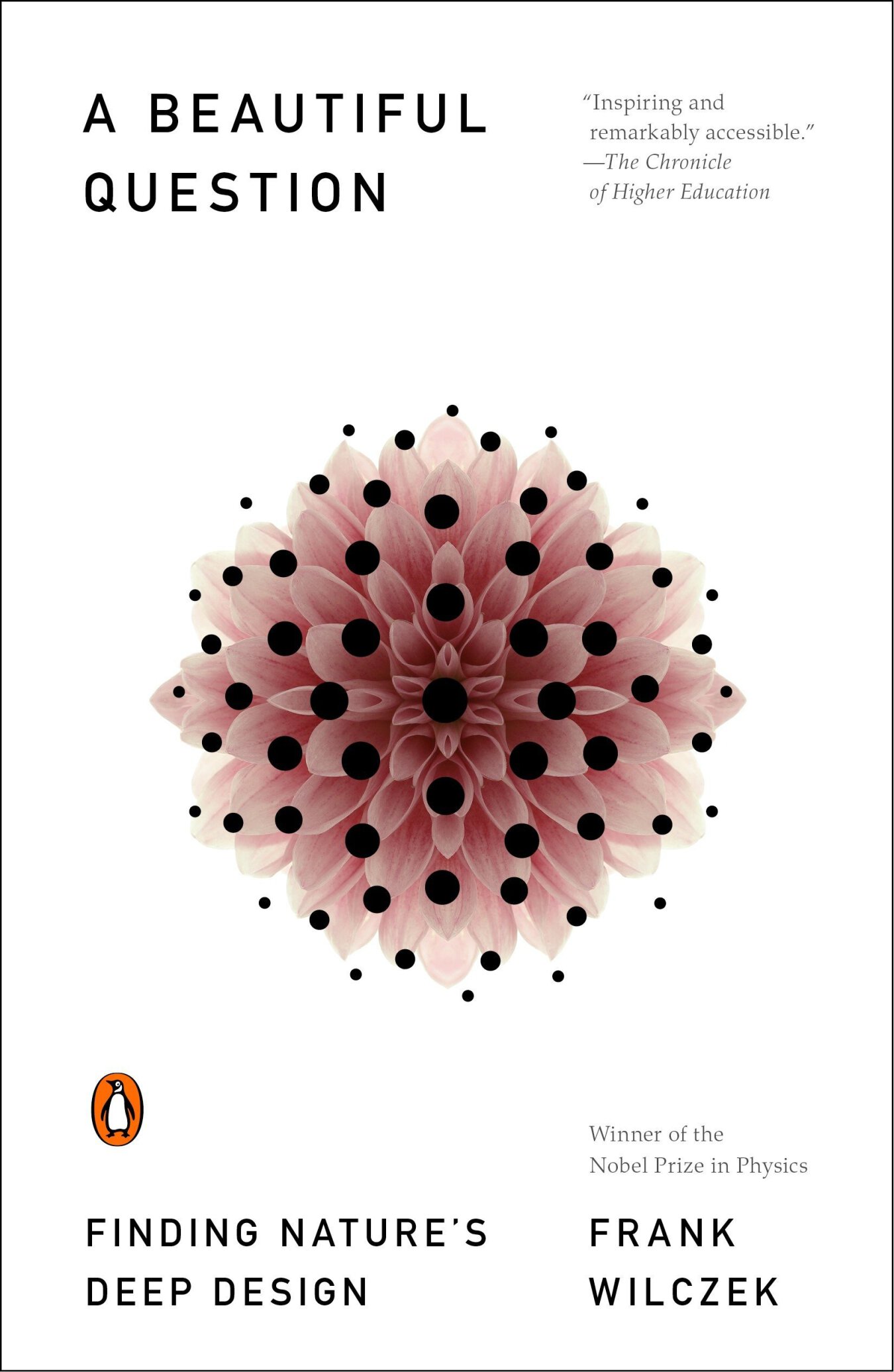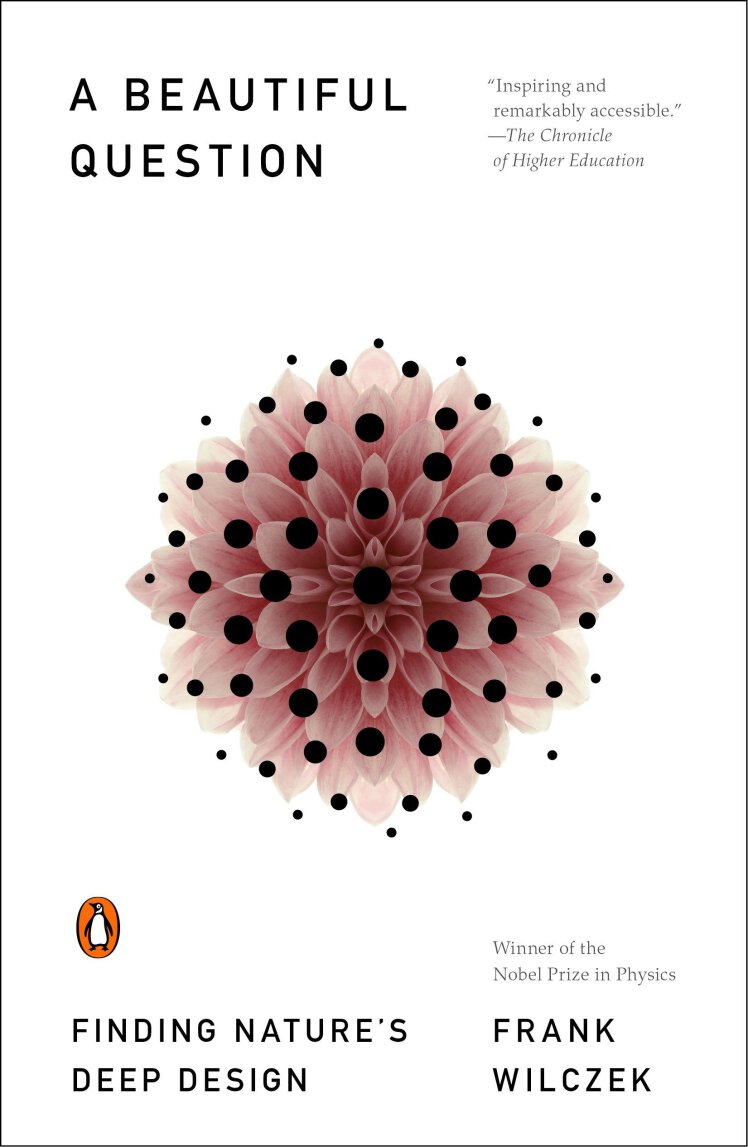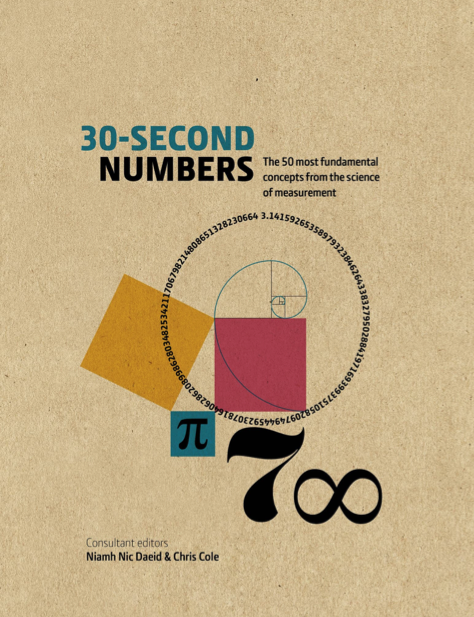A Beautiful Question: Finding Nature's Deep Design | Frank Wilczek
![]()
Frank Wilczek Quantum Theory History & Philosophy of Science Cosmology Mathematics Mathematics History Winner of the Nobel Prize in Physics
- درباره کتاب
- بخشی از کتاب
- نظرات
Does the universe embody beautiful ideas?
Artists as well as scientists throughout human history have pondered this “beautiful question.” With Nobel laureate Frank Wilczek as your guide, embark on a voyage of related discoveries, from Plato and Pythagoras up to the present. Wilczek’s groundbreaking work in quantum physics was inspired by his intuition to look for a deeper order of beauty in nature. In fact, every major advance in his career came from this intuition: to assume that the universe embodies beautiful forms, forms whose hallmarks are symmetry—harmony, balance, proportion—and economy. There are other meanings of “beauty,” but this is the deep logic of the universe—and it is no accident that it is also at the heart of what we find aesthetically pleasing and inspiring.
Wilczek is hardly alone among great scientists in charting his course using beauty as his compass. As he reveals in A Beautiful Question, this has been the heart of scientific pursuit from Pythagoras, the ancient Greek who was the first to argue that “all things are number,” to Galileo, Newton, Maxwell, Einstein, and into the deep waters of twentiethcentury physics. Though the ancients weren’t right about everything, their ardent belief in the music of the spheres has proved true down to the quantum level. Indeed, Wilczek explores just how intertwined our ideas about beauty and art are with our scientific understanding of the cosmos.
Wilczek brings us right to the edge of knowledge today, where the core insights of even the craziest quantum ideas apply principles we all understand. The equations for atoms and light are almost literally the same equations that govern musical instruments and sound; the subatomic particles that are responsible for most of our mass are determined by simple geometric symmetries. The universe itself, suggests Wilczek, seems to want to embody beautiful and elegant forms. Perhaps this force is the pure elegance of numbers, perhaps the work of a higher being, or somewhere between. Either way, we don’t depart from the infinite and infinitesimal after all; we’re profoundly connected to them, and we connect them. When we find that our sense of beauty is realized in the physical world, we are discovering something about the world, but also something about ourselves.
Gorgeously illustrated, A Beautiful Question is a mind-shifting book that braids the age-old quest for beauty and the age-old quest for truth into a thrilling synthesis. It is a dazzling and important work from one of our best thinkers, whose humor and infectious sense of wonder animate every page. Yes: The world is a work of art, and its deepest truths are ones we already feel, as if they were somehow written in our souls.
Editorial Reviews
Review
“Mr. Wilczek takes the reader on an expertly curated tour across 2,500 years of philosophy and physics…One of the great pleasures of Mr. Wilczek’s book is his wide-ranging interest in the way the beauty he finds in symmetry appears across human experience. …He has accomplished a rare feat: Writing a book of profound humanity based on questions aimed directly at the eternal.”—The Wall Street Journal
“Inspiring and remarkably accessible… Wilczek’s language is lyrical and almost mystical…whatever the answer Nature will ultimately give us, we have the pleasure of engaging with an enlightened and humble mind.”—The Chronicle of Higher Education
“The beauty of [nature’s] equations merges with the beauty of literature in Wilczek’s book. It’s a work of art.”—Science News
“Relentlessly engaging…not only names but also wisely reframes a lot of basic concepts in modern physics….Wilczek’s fearless reframing comes as a pleasant relief.” —LA Review of Books
“[A] deep, challenging, and marvelous book.”—Library Journal
"[A] skillfully written reflection...unique in the genre of popular works...contains something for every reader, from the physicist who wants to learn how a Nobel Prize winner thinks of the connection between ideas and reality to the layman who wants to know more about the structure of fundamental laws. A Beautiful Question reminds us of the many ways that science connects to the arts, and it invites us to marvel at the success our species has had in unraveling the mysteries of nature."—Physics Today
"A Beautiful Question is both a brilliant exploration of largely uncharted territories and a refreshingly idiosyncratic guide to developments in particle physics."—Nature
"A commendable investigation of the nature of reality.”—Kirkus
“In this delightful book, we are given a rare opportunity to enter the mind of one of the world’s most creative and insightful scientists. Frank Wilczek’s dazzling meditation on reality reveals the exquisite fusion of truth, beauty and the deep laws of the universe.”—Brian Greene, author of ithe Elegant Universe
“A Beautiful Question is a compelling introduction to the triumphs and challenges of modern physics, presented as a meditation on the role of aesthetics in the search for a deeper understanding of nature, and the deeper meanings of that search for humanity. Full of historical background and infused with the author’s generous humanity, this is indeed a beautiful book, one I recommend to anyone interested in where science is going, written by someone who, by his many lasting contributions to science, has earned our attention.”—Lee Smolin, author of Time Reborn and The Trouble with Physics
“In this exquisite and remarkably accessible book, Frank Wilczek explores our cosmos as a work of art, revealing hidden beauty at all levels from the Galactic realm down to the subatomic microworld that his trailblazing research has elucidated. His ability to see what others overlook makes him an inspiring guide not only for scientists, but also for artists and all curious people.”—Max Tegmark, author of Our Mathematical Universe
“If you’ve ever wondered what physicists mean when they describe a theory as ‘beautiful,’ A Beautiful Question is the ideal place to find out. Wilczek is both one of the greats of the subject, and not afraid to engage non-technically with the wonderful complexities and intangibilities of the mysterious beauty that lies at the core of our understanding of the physical world.”—Peter Woit, author of Not Even Wrong
“Anyone who has studied physics knows the startling beauty of those rare times when the clouds part and you see that math and reality are the same thing. With Wilczek’s new book, readers can catch a glimpse of that beauty without having to know the math.”—Noah Smith, Stony Brook University; author of Noahpinion
“In contemporary art, Beauty has faded, a prosaic artifice, a distraction from deeper raw truths, maybe even ugly truths. To the exceptional physicist Frank Wilczek, Beauty has proven a luminous ally, a faithful advisor in his discoveries of remarkable truths about the world. Ever in pursuit of truth, Frank guides us in a calm and winsome meditation on this subtle question: Is the world beautiful?”—Janna Levin, author of How the Universe Got Its Spots
A beautiful treatise on a beautiful universe, this delightful series of meditations on the nature of beauty and the physical universe roams from music, to color vision, to fundamental ideas at the very forefront of physics today. In lesser hands such a romp could easily degenerate into a kind of new age mystical mumbo jumbo. However, Frank Wilczek is one of the deepest, most creative, and most knowledgeable theoretical physicists alive today. Read him or listen to him and you will never think about the universe the same way again. And if your experience is like mine over the years, you will definitely be the better for it.”—Lawrence Krauss, author of A Universe from Nothing and The Physics of Star-Trek
“Frank Wilczek starts this fascinating book with the intriguing question: Does the world embody beautiful ideas? What follows is a masterful, intellectual journey, surveying a breathtaking tapestry of physics, art, and philosophy. One could ask Wilczek’s question differently: Does this book embody beautiful ideas? The answer would be a resounding Yes!”—Mario Livio, astrophysicist, author of Brilliant Blunders
“Before there was Science, there was Natural Philosophy. In this authoritative, ever-surprising, and lavishly illustrated account, Frank Wilczek brings the grand quest that so captivated Pythagoras, Copernicus, Galileo, Newton, Maxwell, Einstein, Noether, and a host of others both up to date and back to life.”—George Dyson, author of Turing's Cathedral
“A truly beautiful book, in design, in content, in the insights that Frank Wilczek shares. This book helps me see how one of the world’s leading thinkers thinks, using beauty as a tool, as a guide in finding not only the right problems but the right solutions. In Wilczek’s mind, there is no clear separation between physics, art, poetry, and music. Why do physicists call their theories beautiful? Immerse yourself in this book, wallow in it, sit back and relax as you wander through it, and you’ll soon understand.”—Richard Muller, author of Physics for Future Presidents
“For a century, science has invalidated ‘soft’ questions about truth, beauty, and transcendence. It took considerable courage therefore for Frank Wilczek to declare that such questions are within the framework of ‘hard’ science. Anyone who wants to see how science and transcendence can be compatible must read this book. Wilczek has caught the winds of change, and his thinking breaks through some sacred boundaries with curiosity, insight, and intellectual power.”—Deepak Chopra, M.D.
About the Author
Frank Wilczek won the Nobel Prize in Physics in 2004 for work he did as a graduate student. His 1989 book, Longing for the Harmonies, was a New York Times notable book of the year. Wilczek is a regular contributor to Nature and Physics Today and his work has also been anthologized in Best American Science Writing and the Norton Anthology of Light Verse. He lives in Cambridge, Massachusetts, where he is the Herman Feshbach Professor of Physics at the Massachusetts Institute of Technology.










هنوز نظری ثبت نشده
اولین نفری باشید که نظر میدهید
ثبت نظر